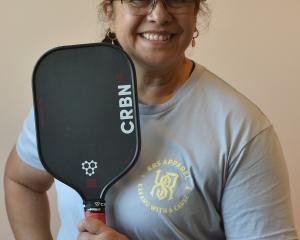The Games roadshow was brought to Dunedin this week by chief executive Shane O'Leary and travel manager Andrew Coplestone.
"This October, thousands of everyday people will have extraordinary experiences at the world's largest multi-sport event," O'Leary told the Otago Daily Times.
"It doesn't matter how good or how old you are. Everyone's invited to take part in this great festival of sport. It is all about being fit, having fun and staying forever young."
The World Masters Games have been held about every four years since they began in Toronto, Canada, in 1985.
This will be the third time the event has been held in Australia. In 1994 24,500 competitors took part in Brisbane, while Melbourne attracted 24,886 participants in 2002.
The World Masters Games is the world's largest multi-sport event, attracting up to three times as many competitors as the Olympic Games.
To compete in Sydney, people need only satisfy their sport's minimum age criteria, which is as low as 25 for diving and swimming and is not above 35 for any of the 28 sports.
Sydney (population 4.4 million) has world-class sports facilities which will be used for the 28 sports.
Athletes will compete at 72 venues, including the Sydney Olympic Park, which will be the headquarters. Other Sydney 2000 Olympic Games sites being used include Bankstown, Blacktown, Liverpool, Penrith and Ryde.
A volunteer workforce of about 6000 people will help during the games, from October 10 to 18.
The Sydney World Masters Games Advisory Committee endorsed the 28 sports in April 2006 and the International Masters Games Association (IMGA) approved them.
The sports are divided into two categories determined by the IMGA: the 15 core sports that must be included in the Games and 13 optional sports chosen on the basis of their tradition in the Games, level of local interest and suitability of venues.
Triathlon has featured in previous Games but will not be part of the Sydney programme.
The International Triathlon Union is staging a World Cup event in September, which will include masters-age competitors, on the Gold Coast.
To make moving around Sydney easier, all registered Games participants will have free travel on the city's extensive transport network.
Per capita, New Zealand has been the best represented non-host nation at each of the six previous Games, with nearly 300 competing at the 2005 Games in Edmonton, Canada.
Nearly 500 New Zealanders have registered for this year's Games, and organisers expect that number to triple.
The IMGA owns the World Masters Games and awards the right to host the event through an organised bidding process every four years.
The Sydney Games is an initiative of the New South Wales government and is expected to inject $A48 million ($NZ61 million) into the local economy.
The New South Wales government has contributed $A8.5 million to the event and this has been matched by the federal government.
Travel manager Andrew Coplestone has a Dunedin connection through his wife Jodi (nee Fountain), who grew up in the city.











